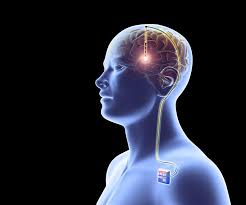
Breaking News
 Ranchers in Washington are challenging the state over a fundamental constitutional question...
Ranchers in Washington are challenging the state over a fundamental constitutional question...
 President Milei launched an account in English but it was suspended by X a few hours later.
President Milei launched an account in English but it was suspended by X a few hours later.
 The Trump Doctrine: "They Have It. We Want It. We Take It."
The Trump Doctrine: "They Have It. We Want It. We Take It."
 Event 201 Pandemic Exercise: Segment 4, Communications Discussion and Epilogue Video
Event 201 Pandemic Exercise: Segment 4, Communications Discussion and Epilogue Video
Top Tech News
 Superheat Unveils the H1: A Revolutionary Bitcoin-Mining Water Heater at CES 2026
Superheat Unveils the H1: A Revolutionary Bitcoin-Mining Water Heater at CES 2026
 World's most powerful hypergravity machine is 1,900X stronger than Earth
World's most powerful hypergravity machine is 1,900X stronger than Earth
 New battery idea gets lots of power out of unusual sulfur chemistry
New battery idea gets lots of power out of unusual sulfur chemistry
 Anti-Aging Drug Regrows Knee Cartilage in Major Breakthrough That Could End Knee Replacements
Anti-Aging Drug Regrows Knee Cartilage in Major Breakthrough That Could End Knee Replacements
 Scientists say recent advances in Quantum Entanglement...
Scientists say recent advances in Quantum Entanglement...
 Solid-State Batteries Are In 'Trailblazer' Mode. What's Holding Them Up?
Solid-State Batteries Are In 'Trailblazer' Mode. What's Holding Them Up?
 US Farmers Began Using Chemical Fertilizer After WW2. Comfrey Is a Natural Super Fertilizer
US Farmers Began Using Chemical Fertilizer After WW2. Comfrey Is a Natural Super Fertilizer
 Kawasaki's four-legged robot-horse vehicle is going into production
Kawasaki's four-legged robot-horse vehicle is going into production
 The First Production All-Solid-State Battery Is Here, And It Promises 5-Minute Charging
The First Production All-Solid-State Battery Is Here, And It Promises 5-Minute Charging
Upgrade Your Memory With a Surgically Implanted Chip

In a grainy black-and-white video shot at the Mayo Clinic in Minnesota, a patient sits in a hospital bed, his head wrapped in a bandage. He's trying to recall 12 words for a memory test but can only conjure three: whale, pit, zoo. After a pause, he gives up, sinking his head into his hands.
In a second video, he recites all 12 words without hesitation. "No kidding, you got all of them!" a researcher says. This time the patient had help, a prosthetic memory aid inserted into his brain.
Over the past five years, the U.S. Defense Advanced Research Projects Agency (Darpa) has invested $77 million to develop devices intended to restore the memory-generation capacity of people with traumatic brain injuries. Last year two groups conducting tests on humans published compelling results.

 Storage doesn't get much cheaper than this
Storage doesn't get much cheaper than this

